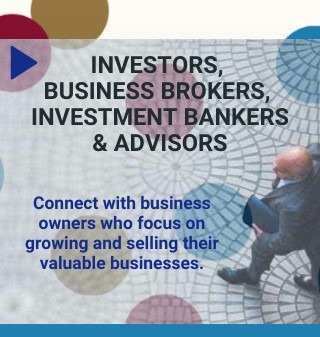 A friend called me recently and asked a question: Do you think you could help a young man, he has a big problem? It turns out that my friend’s friend knew this young man and his father. The father is a well-regarded attorney who has a solo practice – sounds like thousands of other attorneys in the US. The big problem was that the attorney had suffered a catastrophic illness, and would no longer be practicing law. To make matters worse, he was divorced and had no partner to help him. The son was now in charge of disposing of the law firm.
A friend called me recently and asked a question: Do you think you could help a young man, he has a big problem? It turns out that my friend’s friend knew this young man and his father. The father is a well-regarded attorney who has a solo practice – sounds like thousands of other attorneys in the US. The big problem was that the attorney had suffered a catastrophic illness, and would no longer be practicing law. To make matters worse, he was divorced and had no partner to help him. The son was now in charge of disposing of the law firm.
I asked the son his background. His reply, “I am artist”. I’m now thinking, great, this kid has no business training to understand what needs to be done. He knows that he knows nothing, but even worse, he doesn’t know what he doesn’t know.
Asked if his father were able to talk, the son said a little. I asked if his father ever talked about what he wanted to do with his firm. The son was vague, but said something about merging with another lawyer someday. I asked if the father was depending on the sale of the practice to help him financially, the son said he wasn’t sure, but that his father will need income.
At this point, I was getting ill. Imagine that this attorney, no doubt highly educated, resourceful, connected and probably making a decent living, had completely abdicated a central responsibility; he failed to draw up contingency plans for his now present situation.
Entrepreneurial Malpractice – The fact that the father is an attorney may not raise it to legal malpractice, but it’s not much removed. Even solo practitioners are entrepreneurs to some degree, and they need to think through succession and contingency planning. All of this is thoroughly avoidable with some basic planning habits.
 Dying at His Desk – Were the father in a place to talk, I’d have asked him “what were your plans for retiring?” If he is like most lawyers I know, he’d have likely said: “I’ll never retire”, or “I’ll just wind down my practice over time”, or “I’ll figure that out later, I’m too busy now”. Excuses, excuses. What he and others are really saying is “I can’t think of another way to live, so I’ll just die at my desk”. It’s nonsense.
Dying at His Desk – Were the father in a place to talk, I’d have asked him “what were your plans for retiring?” If he is like most lawyers I know, he’d have likely said: “I’ll never retire”, or “I’ll just wind down my practice over time”, or “I’ll figure that out later, I’m too busy now”. Excuses, excuses. What he and others are really saying is “I can’t think of another way to live, so I’ll just die at my desk”. It’s nonsense.
How We Really Leave Planet Earth – We are born into the medical-industrial complex and we die through the medical-industrial complex. At this moment, my aunt is slowly passing out of this world in hospice. It will be a matter of days or weeks. This lawyer will need hospital, rehab and more. He won’t be dying at his desk.
So What to Do Now? – I connected the son to an exit planner and a business broker, before he signed any deals with another law firm. They were willing to give the kid some free advice and try to help. With luck, they will craft some deal to merge with another firm and give the father a chance to finance this portion of his life. There will be many bills due. Sadly the son must wrestle with all of this. He is a good son; at least his father raised him right. He could easily have walked away from his father and said, “It’s your bed, go lie in it”.
Three Existential Questions – If you own a business or a practice, you can avoid this kind of disaster by asking these three questions:
1. What should be the future of my business?
2. What should be the future of my life?”
3. Whom should I be talking to for help?
Ideally, you should ask these questions annually. Your business changes over time. Your industry changes over time. Your life changes over time. Asking these existential questions can get you in tune with the changes and force you to come up with good answers. If you don’t, you could be leaving a royal mess for your spouse, partner, employees, vendors and community at large. Is that the legacy you seek to leave?













